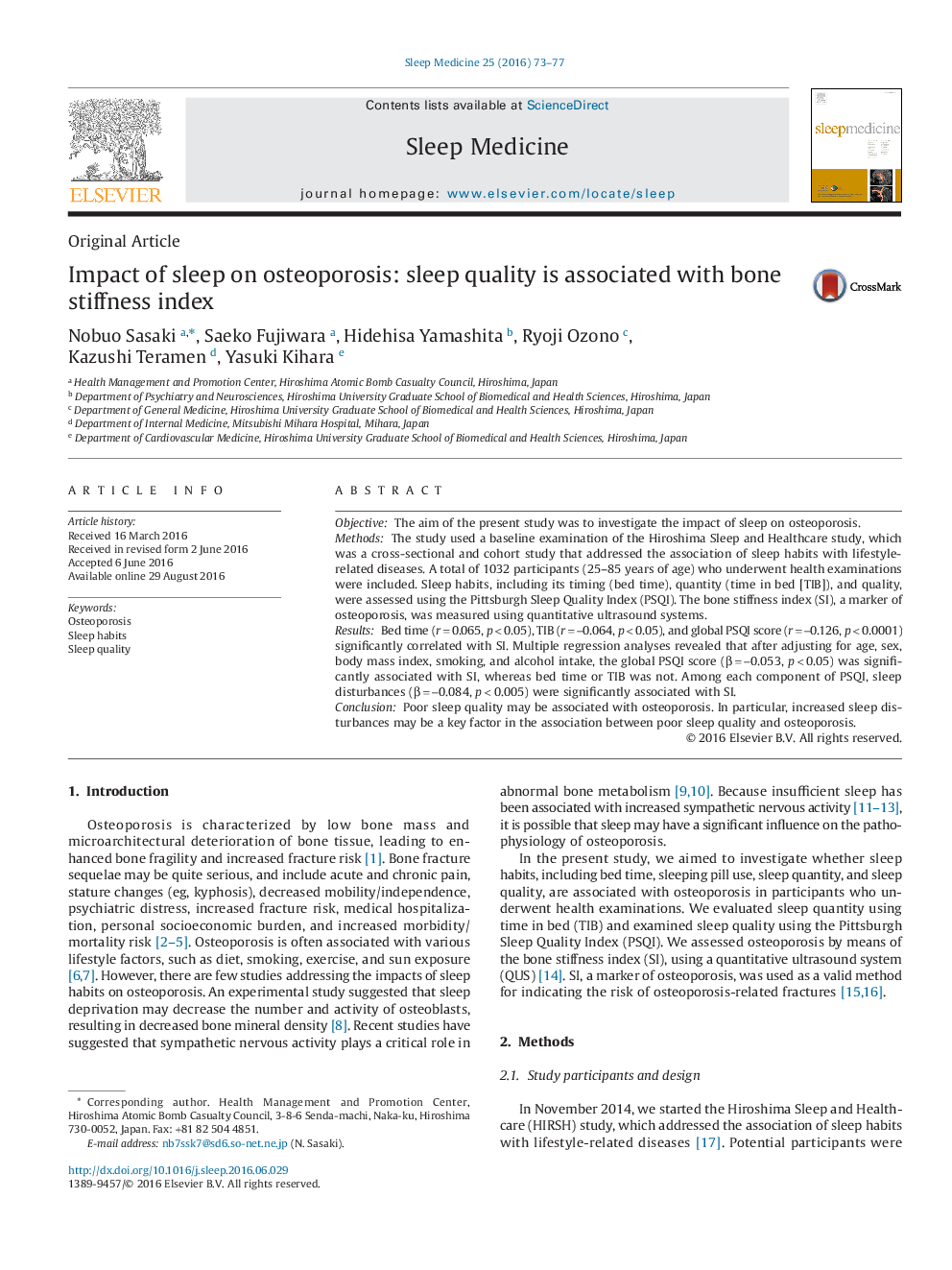| Article ID | Journal | Published Year | Pages | File Type |
|---|---|---|---|---|
| 5643933 | Sleep Medicine | 2016 | 5 Pages |
â¢The impact of sleep quality on osteoporosis was examined.â¢A total of 1032 participants were included in this cross-sectional analysis.â¢Poor sleep quality correlated with osteoporosis, whereas sleep quantity did not.â¢Consequently, sleep may be another lifestyle factor contributing to osteoporosis.
ObjectiveThe aim of the present study was to investigate the impact of sleep on osteoporosis.MethodsThe study used a baseline examination of the Hiroshima Sleep and Healthcare study, which was a cross-sectional and cohort study that addressed the association of sleep habits with lifestyle-related diseases. A total of 1032 participants (25-85 years of age) who underwent health examinations were included. Sleep habits, including its timing (bed time), quantity (time in bed [TIB]), and quality, were assessed using the Pittsburgh Sleep Quality Index (PSQI). The bone stiffness index (SI), a marker of osteoporosis, was measured using quantitative ultrasound systems.ResultsBed time (râ=â0.065, pâ<0.05), TIB (râ=ââ0.064, pâ<0.05), and global PSQI score (râ=ââ0.126, pâ<0.0001) significantly correlated with SI. Multiple regression analyses revealed that after adjusting for age, sex, body mass index, smoking, and alcohol intake, the global PSQI score (βâ=ââ0.053, pâ<0.05) was significantly associated with SI, whereas bed time or TIB was not. Among each component of PSQI, sleep disturbances (βâ=ââ0.084, pâ<0.005) were significantly associated with SI.ConclusionPoor sleep quality may be associated with osteoporosis. In particular, increased sleep disturbances may be a key factor in the association between poor sleep quality and osteoporosis.
